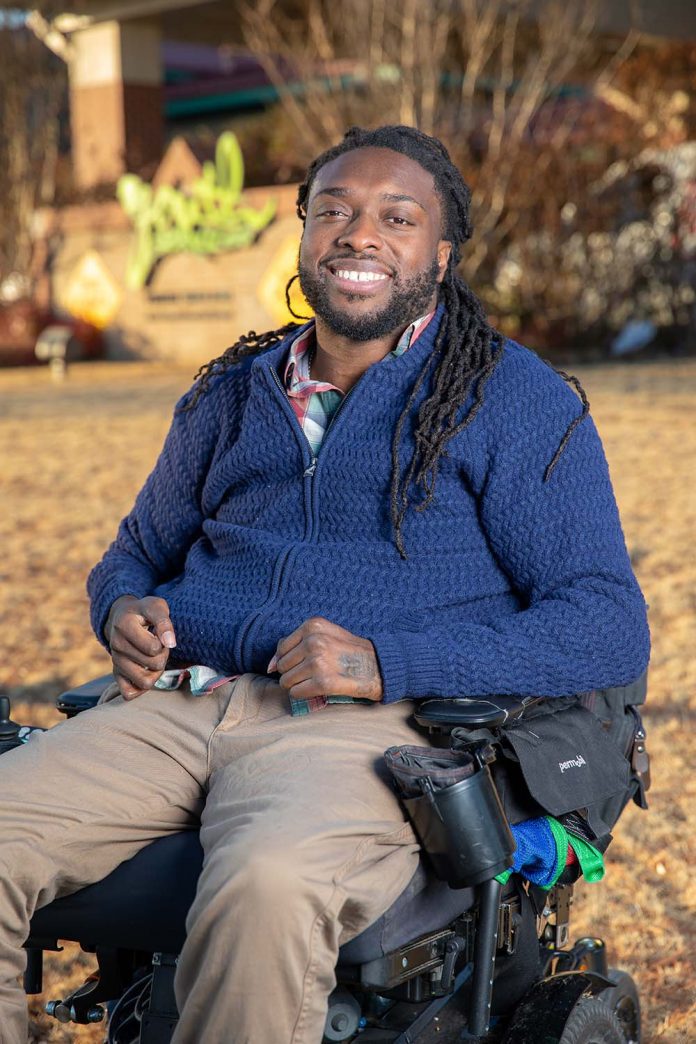If you live in Tulsa, you may have seen Emeka Nnaka, a motivational speaker and advocate for those with physical challenges. The Georgia native and Tulsa transplant (he attended Oral Roberts University) seems to pop up everywhere, and his larger-than-life personality and stature make him difficult to miss.
Wherever he is, he’s usually right in the middle of the action – sharing his thoughts, an endearing smile and a few laughs with those around him.
Nnaka uses these abilities – and a master’s degree in human relations with a focus in clinical mental-health counseling – to inspire people. As a youth specialist at Youth Services of Tulsa, he covers topics like emotion management and instilling the importance of education and lifelong learning. His passion is helping young people improve their points of view.
“Maintaining proper perspective can give them power in their lives,” Nnaka says. “When we change the way we look at things, the things that we look at change. A kid’s future can change if he can change the way he is looking at his present circumstances. It becomes something that helps versus something that hurts.”
Nnaka knows about shifting perspectives. During a semi-pro football game in 2009, at age 21, Nnaka sustained a spinal cord injury that radically changed the trajectory of his life. Paralyzed from the chest down, he has instant credibility with young audiences when he discusses change.
“This is not something that I’m just teaching because I heard it. I live this thing. I live it every single day,” he says. “There are days that I don’t have willpower and I have to generate it to get to these goals. Some people speak a message; I live one.”
Nnaka, who appeared on the Ellen DeGeneres Show in November, believes in hope … but not just the ephemeral feeling that might come to mind. He can define it. Thanks to the Hope Research Center at the University of Oklahoma-Tulsa, where he did his graduate work, Nnaka and others can research, measure and work to increase hope in individuals who obviously need some. According to Nnaka, the basic components of hope are attainable goals, pathways to reach those goals, and the personal willpower or grit to achieve them.
Nnaka, practicing what he preaches, has goals this year that include expanding his public speaking and individual and small-group coaching, and continuing to work toward his counseling license. A book with a late 2019 release is in the works, too.
“Being able to impact the lives of others and helping people realize that they are stronger than what they think … gives my life a lot of purpose and meaning and it gives my accident a lot of meaning and purpose,” he says. “I now live a full life and I live with no regrets and with passion.”
Bonnie Rucker























